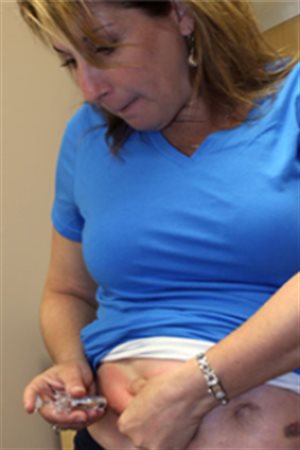Sometimes, you have to go against the flow. It can hurt and it takes courage, but sometimes–not always, mind you–everything really does work out for the better.
Dr. Marc Rodger knows the drill. He is a senior scientist at the Ottawa Hospital Research Institute who heads up the Thrombosis Program of the Ottawa Hospital.

For the last 12 years, Dr. Rodger and his research team took the road less travelled, carrying out a study of blood clots and pregnant women–292 women in 36 countries in five countries.
Ignoring resistance from various and sundry corners and bucking conventional wisdom, Dr. Rodger and his team proved conclusively that all that was thought to be true in the treatment of pregnant women and blood clots just wasn’t so.
Bottom line: Pregnant women need no longer give themselves painful daily injections of the anticoagulant low molecular weight heparin (LMWH) to prevent complications caused by placental blood clots.
The finding was good enough for The Lancet, the weekly peer-reviewed general medical journal that has been described as one of the most prestigious medical journals in the world. It published the results in July.
Dr. Rodger didn’t stop there. The study led to something else: the creation of a network called CanVECTOR, of which Dr. Rodger is co-director.
CanVECTOR aims to advance and co-ordinate research in diagnosis and improving quality of life of life and management of blood clots of the legs, lungs and heart both in Canada and globally, conditions that affect 500,000 Canadians and Americans every year.
Dr. Rodger spoke to RCI by phone from his office in Ottawa.
Listen






For reasons beyond our control, and for an undetermined period of time, our comment section is now closed. However, our social networks remain open to your contributions.